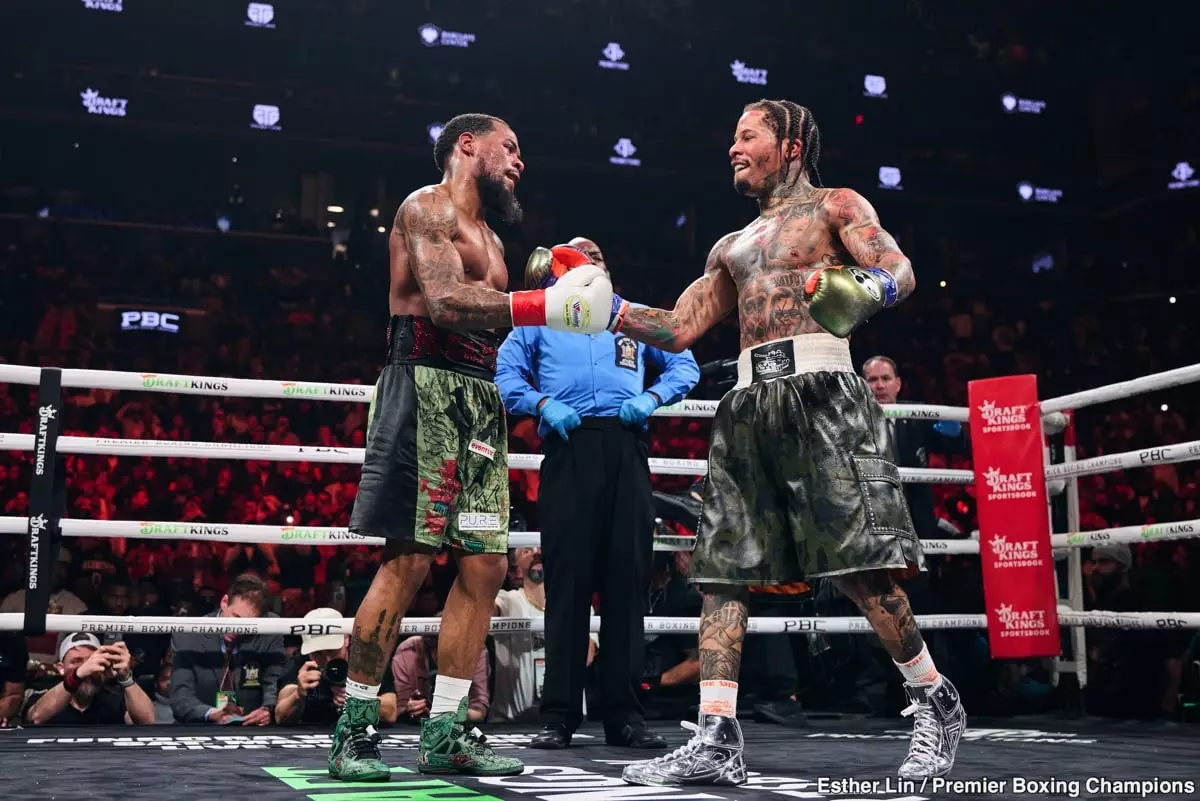In the world of professional boxing, few events are as contentious as decisions that don’t sit well with fans, fighters, and promoters alike. The recent bout between WBA lightweight champion Gervonta “Tank” Davis and Lamont Roach has raised eyebrows and ignited discussions across the sport regarding the integrity of officiating. Did the New York State Athletic Commission get it right with the majority draw, or has a dark cloud of controversy loomed over the Barclays Center, enveloping what could have been a defining moment for both fighters?
Promoter Eddie Hearn took center stage in defending Roach’s merits in the fight. He expressed disbelief that a potential knockdown, which he and many others agree should have been ruled in the ninth round, was completely overlooked. Hearn’s perspective provides a lens through which we can examine the implications of this bout—not only about the fight itself but also about the rules and regulations that govern the sport. When a fighter takes a knee during an exchange, one has to question the rationale that leads referees to opt against calling it a knockdown. Such decisions can transform the trajectory of a fight and the fighters’ careers.
The Role of the Athletic Commission and Fan Reactions
The New York State Athletic Commission finds itself in a delicate position. With Roach’s camp appealing for a victory through administrative channels, so too comes the weight of public opinion. Fans and analysts alike have been vocal about their discontent regarding the officiating. As boxing continues to grapple with its image and relevance in the sporting landscape, every controversial decision invites scrutiny and challenges the authority of the officials. The very essence of boxing relies not only on the skills displayed in the ring but also on the legitimacy of the outcomes.
Hearn, while acknowledging the potential for a rematch, seems skeptical about the Commission’s willingness to alter the fight outcome. Popularity plays a significant role in the business of boxing—changing a decision that might irk a fanbase could create unforeseen backlash. For Davis, whose star power looms large, the decision becomes doubly complex. Would overturning the draw alienate his loyal fanbase? Or would it serve as an impetus for accountability within the sport? These questions create a challenging dynamic for the authorities involved.
The Implications of a Knockdown Missed
At the heart of this controversy lies the potential ramifications of a missed knockdown call. If the Commission were to award Roach a decision based on the slapdash officiating, the effect ripples beyond individual wins and losses. It could foster a more vigilant oversight atmosphere for referees and judges as they reconsider their approaches to officiating high-stakes fights. The moment that a referee opts to enforce—or overlook—a call can indicate varying degrees of bias or errors in judgment. This reality becomes even more pronounced in critical moments, such as a championship fight that serves as a focal point for the weekend sports calendar.
While Hearn mentions the competencies of Roach as both a fighter and a game opponent, one cannot ignore the tension that underscores the entire bout. His assertion that a rematch is almost a forgone conclusion suggests a desire for clarity that the initial outcome failed to provide. This echoes a sentiment growing within the boxing community: an urgent need for fair and transparent outcomes.
Celebrating Sport amidst Controversy
Every bout provides a unique narrative—a tale spun from sweat, bruises, and determination. While the furor surrounding the Davis-Roach fight has drawn attention to issues of officiating and governance, let’s not neglect what both athletes contributed to the squared circle. Each fighter’s performance speaks volumes about their grit, skill, and dedication. For Roach, the intensity of his struggle against an established champion like Davis is a story in itself, irrespective of the official outcome.
As spectators, fans, and associates of the boxing community reflect on what transpired in Brooklyn, the underlying message resonates clearly: the sport deserves better. Already fraught with challenges around transparency and biases, boxing must evolve. It’s a sport where honors are fought for under electric lights, and every punch thrown should echo fairness, sportsmanship, and the promise of undisputed glory. What lies ahead for both fighters remains to be seen, but one thing is for certain: the fight isn’t over yet.


Leave a Reply